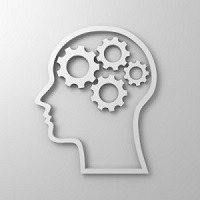What magic can teach us about our brains..

MY CARD — the jack of diamonds, the one with my name scrawled on it twice in green Sharpie — is in the right pocket of Gustav Kuhn’s jeans. Just a second ago it was on the top of the deck, and less than a second before that it was in the middle.
“You don’t believe me? I’ll do it again. It’s in the middle of the deck, and then it comes riffling through the air,” Kuhn says, whistling as the card makes its imaginary flight from deck to pocket. There it is again, peeking out from his pocket, my green name clearly visible. Then, in a flash of showmanship, he produces the card in his hand — and the rest of the deck is now in his pocket.
It’s a basic but astounding trick, not the least because of what happens in my brain to enable me to experience it. It’s impossible for a card to dematerialize and reappear somewhere else. I know this. Anyone who’s ever seen a magic show knows this. But what our eyes tell us and what we experience create different narratives — I never saw him put the card in his pocket, or nestle it in the deck, because he was directing my attention elsewhere — and point to the quirks of human cognition. That we greet the evidence of these quirks, the magical effect, with delight, awe, and even wonder is all part of magic’s peculiar charm.
“Magicians are trying to find loopholes in cognition, and they’re trying to exploit those loopholes to create their illusions,” explains Kuhn, who is a senior lecturer in psychology at Goldsmiths, University of London and a parlor magician. He and a growing cohort of scientists from multiple disciplines are trying to identify those loopholes and figure out how they work and what they tell us about human experience, perception, and cognition. They want to build a science of magic. Read more of this interesting article at:
https://www.bostonglobe.com/ideas/2016/09/01/magic/IYE084jKTpuA5mUHmF1xKP/story.html